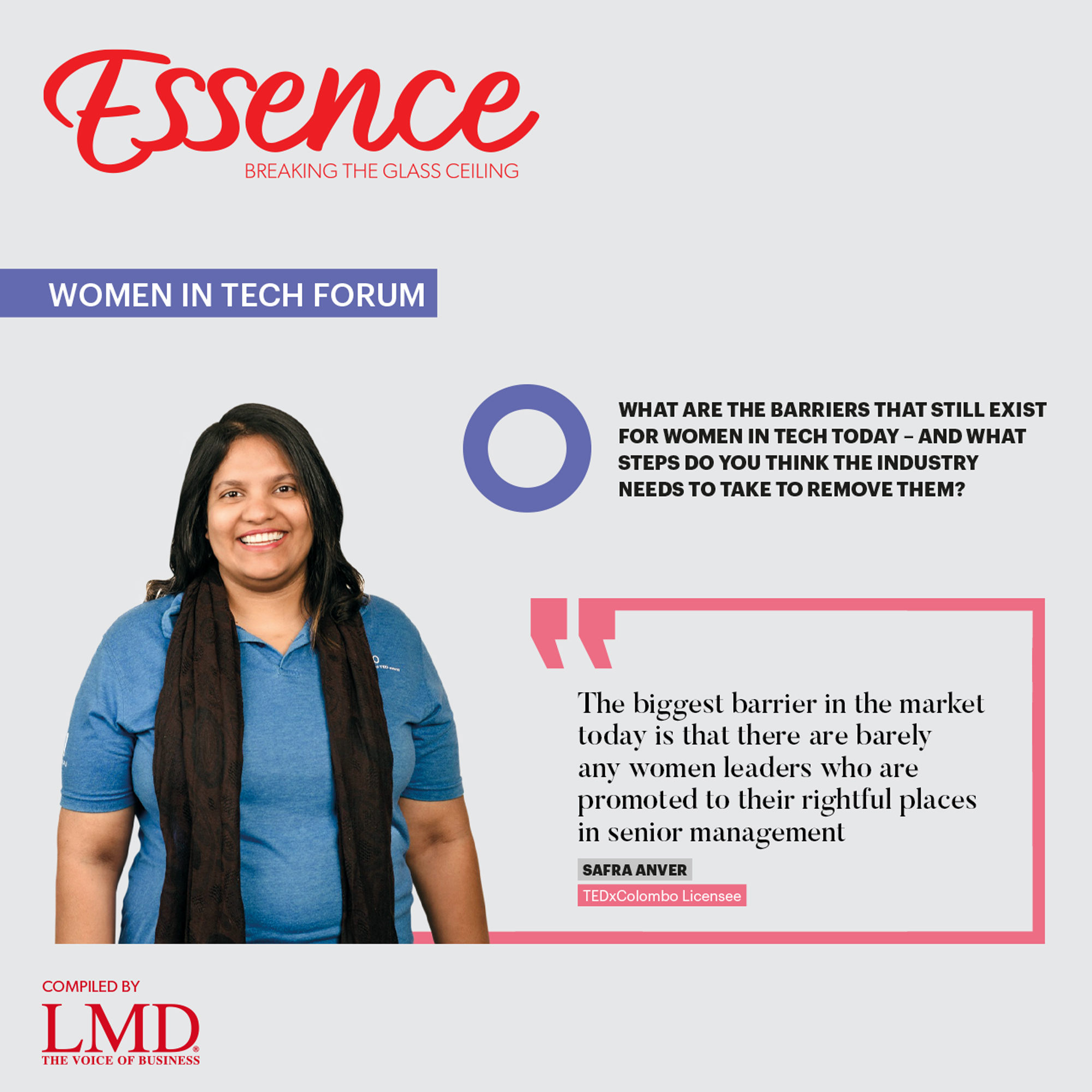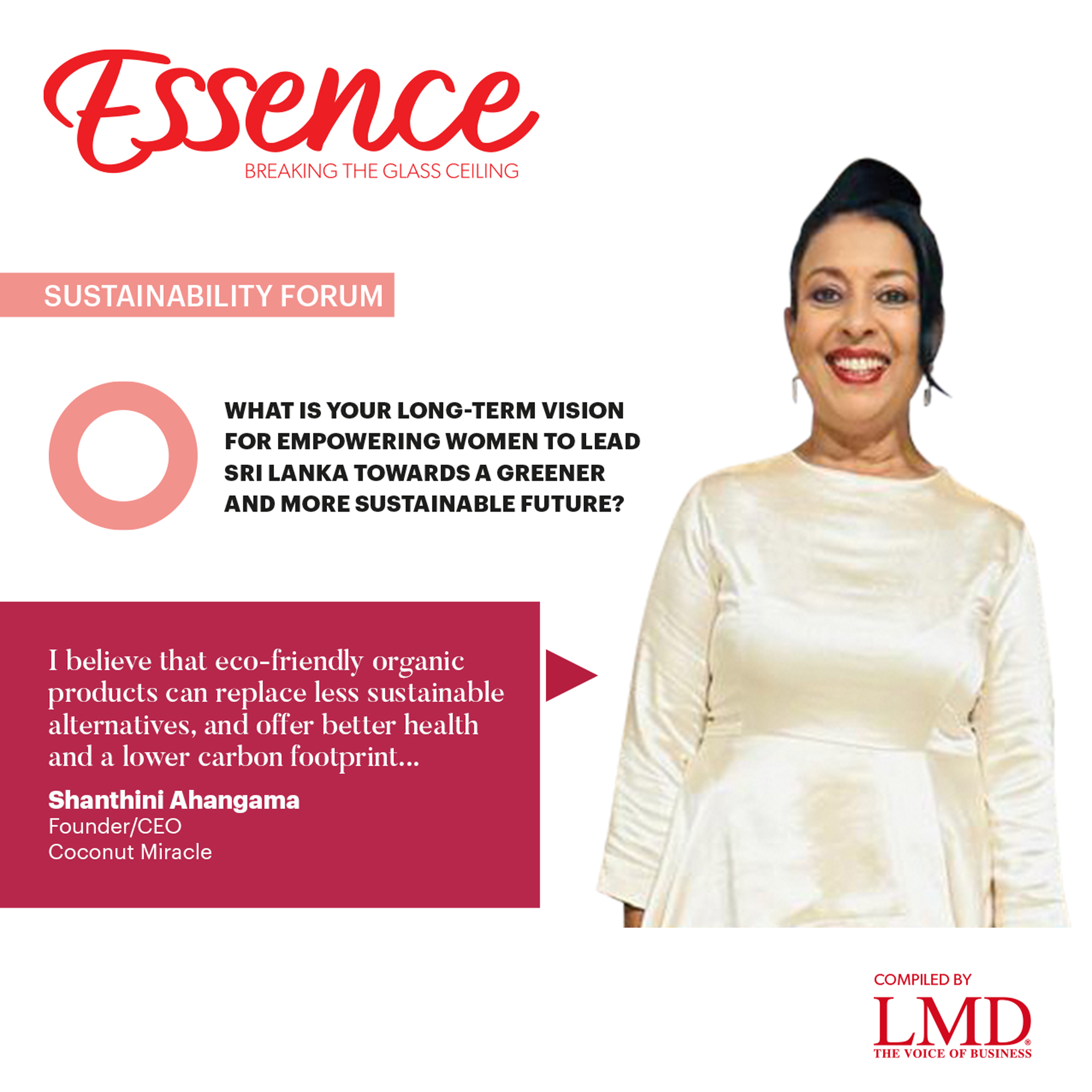IAS HOLDINGS
 Q: To what extent do women participate in conventional and non-conventional fields in Sri Lanka?
Q: To what extent do women participate in conventional and non-conventional fields in Sri Lanka?
A: My tenure in the logistics sector spans almost 27 years and I see more women entering the field now than when I first joined. And I eventually rose to become the Managing Director and a shareholder of Hellmann Worldwide Logistics.
Additionally, I was ranked 40th among the 50 Most Powerful Women in Sri Lanka in 2014; won Gold in the Supply Chain category at the Women in Management (WIM) Awards in 2016; was conferred an Outstanding Woman Entrepreneur award at the Top50 Professional and Career Women Awards for Sri Lanka and the Maldives; and became the first female chairperson of the Sri Lanka Logistics & Freight Forwarders Association (SLFFA).
In this part of the world, logistics is considered to be an unconventional field for women. There were some women in middle management and at lower levels but none in senior management.
As a woman entrepreneur in today’s logistics field, I continue to focus on increasing the representation of females in the sector. The goal is not only to increase the positions secured by women but also help nurture more female entrepreneurs in the sector to generate even more employment opportunities.
In my role as a senior representative of the sector and member of SLFFA, I’ve embarked on efforts to include logistics as a subject at the secondary level.
 Q: How important is mentorship in this context?
Q: How important is mentorship in this context?
A: Mentoring is important so my door is always open to juniors seeking advice and guidance. I’m more than happy to encourage women and create a path for them.
As a past Chairperson of SLFFA – which is positioned as the apex body of the freight and logistics sector in Sri Lanka – and the first female to occupy such a role in the Indian subcontinent’s freight sector, I have valuable experience to share.
Companies can foster conducive workplaces and motivate female employees but at the end of the day, it’s about how determined those women are and how much they want to achieve their goals.
Some achieve their goals irrespective of hurdles. If that mindset is not present, even the best working environment would be of no use.
Q: What is your take on women’s representation in the public and private sectors?
A: The public sector does not have as many female employees when compared to the private sector and much more needs to be done in terms of achieving a gender balance.
Female employees in logistics are largely in administrative positions such as human resources, finance and data processing but not high profile positions in operations. Therefore, women are easily overlooked although they’re a significant part of the sector.
 Q: Are Sri Lankan businesswomen capable of going global, in your view?
Q: Are Sri Lankan businesswomen capable of going global, in your view?
A: There is great potential but some women do not aspire to spread their wings beyond local shores; perhaps we lack the ambition to go bigger and international.
I established IAS Holdings in 2017 with two overseas partners. Today, the group comprises three companies, two of which are joint ventures.
One was acquired by the fifth richest man in China – positioning us among the largest Asian freight forwarders – while the other is worth US$ 2 billion. Additionally, we have a multi-platform local company.
I did not encounter many roadblocks while setting up the business because I knew what to expect based on my experience in the sector, setting up Hellman Logistics in Sri Lanka 20 years ago with free reign to build the company. This experience helped me in setting up the venture.
Q: How crucial is it for women to assert themselves in the business world?
A: In my 30-year stint in the sector, I have been an active facilitator and a voice to help move the logistics space to the next level.
The most important lesson we have learnt during COVID-19 is that women should strive to be independent for their own wellbeing and that of their families. And once they’ve found their rightful places in their businesses or working in companies, they should have the self-confidence to express themselves without fear.





